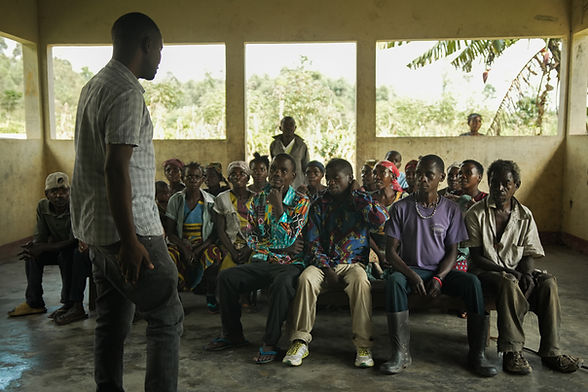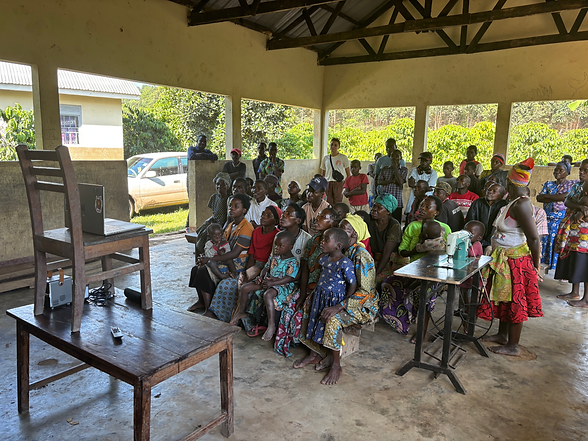
From the start, the IHAMBA project has been built on a collaborative, community-led approach, placing Batwa voices and leadership at its core. Recognizing the long history of extractive research and exclusion faced by Batwa communities, this project was intentionally designed around trust, shared decision-making, and respect for Batwa knowledge and cultural values.

Years of Collaboration
Building on over 15 years of research and relationship-building through the Indigenous Health Adaptation to Climate Change (IHACC) project, the IHAMBA project uses film as a tool to amplify Batwa experiences with their eviction, elevate Indigenous voices, and advance cultural and environmental justice. Through focus groups and informal gatherings during a scoping trip in July 2023, over 100 Batwa shared their priorities, visions, and how they wanted the project to serve their communities. This laid the foundation for a process directly accountable to Batwa needs and aspirations.
Batwa Advisory Committee
From these early dialogues, a Batwa Advisory Committee was formed as a central leadership body guiding the IHAMBA project. Composed of respected Batwa elders, youth, and community representatives from across the 10 Batwa settlements in Kanungu District, the committee ensures that the storytelling and research processes reflect Batwa priorities, values, and lived experiences.


Capacity Development
A key part of this process has been training and supporting Batwa youth in community-based research and filmmaking. We hired a Batwa Research Assistant who received hands-on training in film and research methods, in addition to one-on-one mentorship from project leads. The project worked to foster leadership development, ensure authentic representation, and help build capacity within the community to continue sharing their stories beyond the film.
Collaborative Film Editing
Unlike traditional documentary projects where footage is often taken away and edited without participant involvement, the IHAMBA film embraced a collaborative co-editing process. Batwa collaborators were engaged throughout production and post-production, actively reviewing raw footage, shaping the story arc, and making key decisions about representation. This collaborative editing approach also prioritized accurate language translation and cultural nuance, with Batwa providing input to ensure the film’s message remained true to their voices and values.

